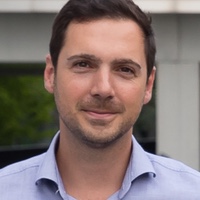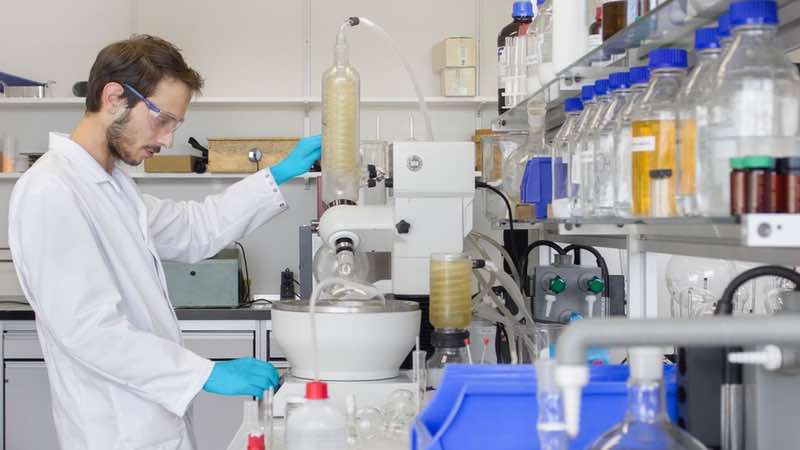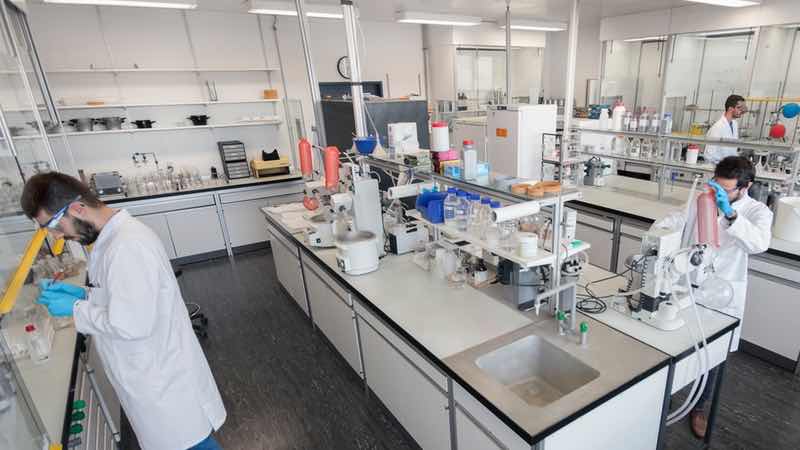Dr Thomas Fessard, CEO and cofounder of SpiroChem spoke to Angharad Baldwin, News Editor, Manufacturing Chemist, about aiding drug efficacy, improving generic drug viability and staying in touch with academic chemistry development.
Dr Thomas Fessard studied chemistry at ENSC Montpellier, the University of Manchester and then obtained his doctorate from the University of Nottingham.

Dr Thomas Fessard
In 2011, Dr Fessard cofounded Swiss-based SpiroChem with Professor Erick M. Carreira, sensing the need for a service that improved the properties of drug candidates and expedited their time to market.
SpiroChem is a fine chemical company that specialises in the design, synthesis and production of novel building blocks for use in drug discovery.
The company is driven by a desire to be a source of innovation for the Life Science industry says Dr Fessard.
Composed almost entirely of scientists, SpiroChem has a small, dynamic team who look to improve efficacy, reduce side-effects, improve the solubility of drug candidates and optimise the manufacturing process to name a few, for small, medium or large pharmaceutical or life science companies.
Dr Fessard states that: “Currently, of the average $2–3 billion spent when researching and developing new drugs, only 2% of this money is spent on the early stage chemistry of the compounds." He believes that if more money were invested at the beginning of the chain to optimise certain parameters of the candidates, it would lead to decreased attrition of the pipeline at the clinical trial stage.
SpiroChem works exclusively on small molecules and does not work on biologics, which includes antibodies, interleukins and vaccines. Its specialty is bioisosterism: bioisosteres are chemical substituents with similar chemical or physical properties to another chemical compound and that also produce similar biological properties.

SpiroChem utilises this chemistry to exchange one bioisostere for another to enhance certain biological parameters. Benefits can include reduced side-effects, longer half-lives or improved solubility of a drug compound, without significantly altering the chemical structure. This strategy can also be used to reduce toxicity, enhance the bioavailability or alter the metabolism or activity of the lead compound.
This concept means that new classes of compounds can be developed to improve drug candidates, but requires complex chemistry know-how. Currently, the company is applying it to the pharmaceutical industry; but, there will likely be opportunities in other sectors such as agrochemical and even cosmetics.
Although most of the improvement to the small molecules is down to a detailed understanding of complex chemistry, Fessard also attributes some success to a “gut feeling” coming from years of experience in this field. He also highlighted the possible impact of SpiroChem chemistry services for generic drugs. Key to the viability of manufacturing generics is reducing cost. "When a drug comes off patent, it is often manufactured using a process that was developed some 20 years ago," explains Fessard. "As such, there’s great potential for improvement using modern technology.”
One example, notes Fessard, was the production of a generic drug that required a controlled environment for one of the intermediates in the process. Maintaining the controlled environment was an expensive part of producing the generic compound. SpiroChem altered the process so the intermediate was no longer required, leading to a significant cost saving.

Fessard also speaks of the emphasis within the company of staying at the forefront of chemical knowledge, attending conferences, reading literature or interacting with leading Professors and key opinion leaders, which he believes is key for the team to be able to deliver the service they do. Keeping an open eye for new technologies is also important. He cites the introduction of flow chemistry as an example, a relatively young technology that provides significant advantages to the chemical process. This includes faster, cleaner and safer reactions, and easier scale-up, which is very useful when dealing with the production of pharmaceuticals on an industrial scale, and easier multi-step procedures.
The tailored service offered by SpiroChem aims to accelerate the transition from concept to product and as, according to Fessard, the company’s customers include 16 of the top 20 non-biologic pharma organisations, SpiroChem clearly seems to be delivering something of value. Foreseeing growth on the horizon, Fessard truly believes that chemistry is key to catalysing drug development.
